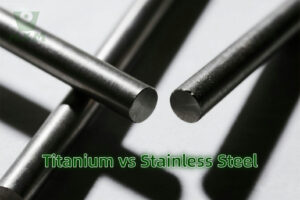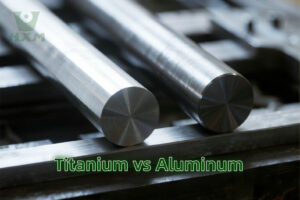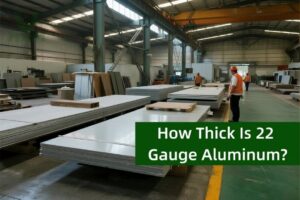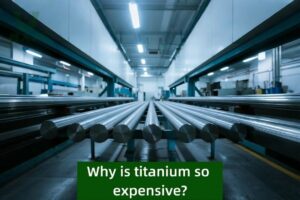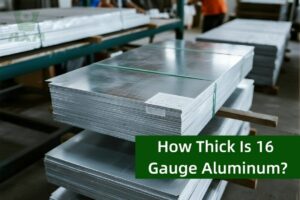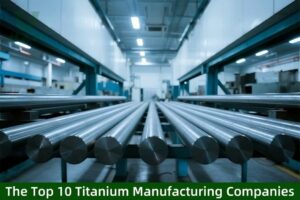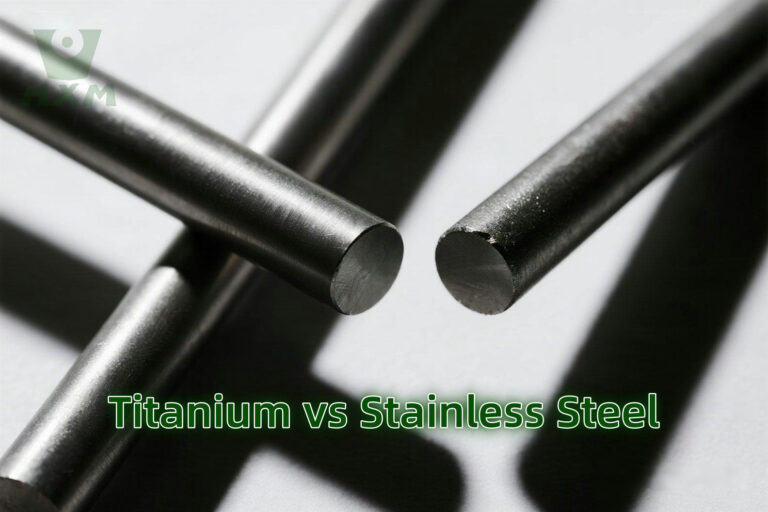
For critical applications demanding strength and corrosion resistance, the titanium vs stainless steel dilemma is inevitable. As Huaxiao-Alloy – a premier supplier of aerospace-grade titanium alloys and high-performance stainless steel – we dissect these metals to guide your selection.
Property Showdown: Titanium vs Stainless Steel
| Property | Titanium (Grade 5) | Stainless Steel (316/A4) | Winner | Key Implication |
|---|---|---|---|---|
| Density (g/cm³) | 4.43 | 8.00 | Titanium | Titanium is 45% lighter (critical for aerospace/auto) |
| Tensile Strength (MPa) | 900-1200+ | 515-690 (316 annealed) | Titanium | Ti dominates strength-to-weight scenarios |
| Strength-to-Weight | Exceptional (250+ MPa·m³/kg) | Good (~65 MPa·m³/kg) | Titanium | Titanium excels where weight savings = performance |
| Corrosion Resistance | Superior (immune to pitting, saltwater) | Excellent (resists oxidation/chemicals) | Titanium | Titanium thrives in chlorine/seawater (stainless steel exhaust vs titanium favors Ti) |
| Hardness (HV) | 250-350 | 150-220 (316 annealed) | Titanium | Ti resists scratches better (hardness of titanium vs stainless steel) |
| Biocompatibility | Excellent (Osseointegration) | Good (surgical 316L) | Titanium | Ti dominates medical implants |
| Cost (USD/kg) | 80−150+ | 5−30 | Stainless | SS wins on budget for non-critical uses |
| Thermal Conductivity | Low (7 W/mK) | Low (16 W/mK) | Tie | Both poor for heat transfer (avoid for cookware) |
| Machinability | Difficult (gummy, tool wear) | Moderate (work-hardens) | Stainless | SS allows faster production cycles |
| Max Service Temp | 430°C (806°F) | 870°C (1600°F) (316) | Stainless | SS excels in high-temp environments |
*(Key Takeaway: Titanium wins for strength-to-weight, corrosion resistance, and biocompatibility. Stainless steel wins for cost, high-temp performance, and machinability.)*
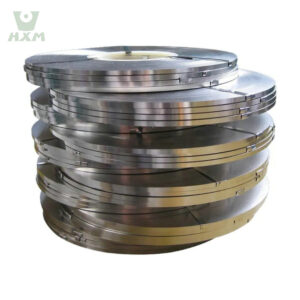
Titanium Alloy Strip / Precision Strip
Huaxiao-Alloy supplies medical & aerospace-grade Titanium Alloy Strips (0.05–5.0 mm) with ±0.005 mm tolerance. AS9100D & ISO 13485 certified. Custom slitting, annealing, global delivery. Request samples!
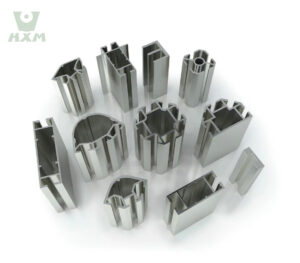
Huaxiao-Alloy manufactures high-performance Titanium Alloy Profiles (ASTM B381/ASME SB381) for aerospace, medical, and energy sectors. AS9100D & ISO 13485 certified. Custom sizes, global delivery, competitive MOQ. Request samples now!
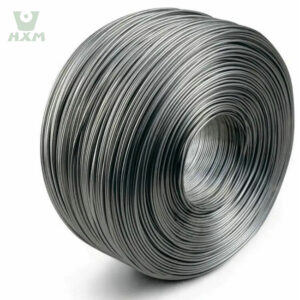
Huaxiao-Alloy supplies premium titanium wire and mesh for aerospace, medical, marine, and chemical industries. ASTM/AMS-certified, corrosion-resistant solutions with high-temperature stability. Request a quote today!
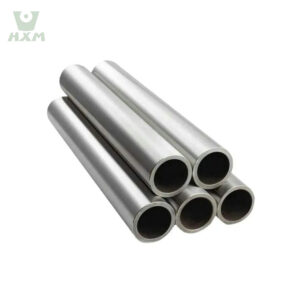
Huaxiao-Alloy – Premium titanium alloy pipe & tube manufacturer. ASTM/AMS-certified solutions for aerospace, medical, and chemical industries. Request a quote!
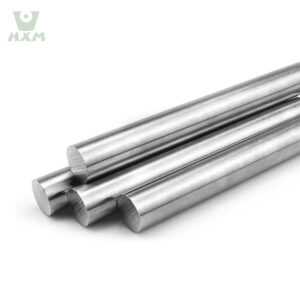
ISO 9001 certified titanium bar manufacturer supplies Grade 5/23/7 round/flat/square bars. Get AMS 4928 compliant 6Al-4V bars with full traceability. Request quote!
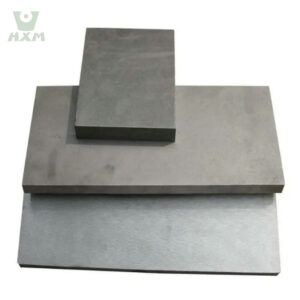
Huaxiao Alloy supplies premium titanium plates, sheets & coils (1/4”, 1/8”, 5mm) for aerospace, armor, and industrial use. TC4, Gr5, and custom alloys available. Free quote & global shipping!
Performance Analysis by Application - Titanium vs Stainless Steel
1. Weight-Critical Industries (Aerospace, Automotive)
- Titanium: Indispensable for jet engine blades, landing gear, racing exhausts (stainless steel exhaust vs titanium swap saves ~40% weight).
- Stainless: Used for fuel tanks, fasteners where weight is secondary.
Huaxiao Insight: For rotating parts, Ti’s fatigue resistance + lightness outweigh cost
2. Medical & Wearables (Implants, Apple Watches)
- Titanium: Biocompatible, hypoallergenic, lightweight. Ideal for bone screws, watch cases (titanium vs stainless steel rings last longer).
- Stainless (316L): Cheaper surgical tooling, watch backs. Prone to nickel allergy.
Consumer Note: Alloy vs stainless steel watches – Ti feels lighter, more premium
3. Chemical & Marine Hardware
- Titanium: Unmatched chloride resistance (offshore rigs, desalination plants).
- Stainless (Super Duplex/6Mo): Cost-effective for moderate salinity.
Corrosion Tip: Titanium stainless steel is a myth – no alloy combines both metals effectively
4. Cookware & Cutlery
- ”Titanium” Pots/Pans: Often aluminum core with Ti coating (real titanium pots conduct poorly).
- Stainless Steel: Reliable (316 titanium cookware performs well, is nonreactive).
Myth Buster: Titan steel doesn’t exist – true Ti cookware is niche/expensive
Huaxiao-Alloy: Precision Titanium & Stainless Solutions
From titanium alloy bar stock to certified 316 stainless plate, we engineer success:
- Material Mastery: Expertise in Ti Grade 5/9 and SS 304/316/2205.
- Precision Processing: CNC, welding (Ti’s inert-gas requirements), finishing.
- Cost Optimization: Right-grading guidance (titanium steel price vs value).
- Global Certification: AMS, ASTM, EN, ISO compliance.
Why Choose Huaxiao Alloy?
| Choose Titanium When | Choose Stainless Steel When |
|---|---|
| Strength-to-weight ratio is critical | Budget constraints dominate |
| Saltwater/chemical exposure exists | Operating temperatures exceed 400°C (750°F) |
| Biocompatibility is mandatory | Machining/fabrication costs must be low |
| Weight savings justify cost premium | Industry-standard material suffices |
Huaxiao-Alloy powers your precision. From medical-grade titanium rods to high-temp stainless steel flanges, we deliver certified material excellence. Contact us for project-specific alloy guidance and quotes.
Yes. Grade 5 titanium (1200 MPa) is ~2x stronger than 316 stainless (580 MPa) while being half the weight (titanium vs stainless steel weight favors Ti).
No. Titanium is a separate element (atomic #22). “Titanium stainless” typically refers to coatings or marketing terms.
Misnomer. Titanium-steel alloys exist (e.g., Beta-Ti alloys), but they lack corrosion resistance. True Ti is >90% pure.
Cost (titanium steel price ≈ 5-10x SS) and high-temperature tolerance (SS withstands >800°C).
Titanium: Lightweight, hypoallergenic, modern look. Stainless: Cheaper, heavier, traditional.
Harder than stainless (Ti HV 300 vs. SS HV 200) but can scratch. Brushed finishes hide wear better.
Not directly – brittle intermetallics form. Use mechanical joints (bolts/rivets) with isolating spacers.
- Titanium: Lightweight handles, non-sparking blades (safety tools).
- Stainless: Sharper edge retention (e.g., VG-10, S30V alloys).
- Titanium needles: Hypoallergenic, corrosion-free, sharp edge retention.
- Stainless: Risk of nickel allergy, blunting over time.

